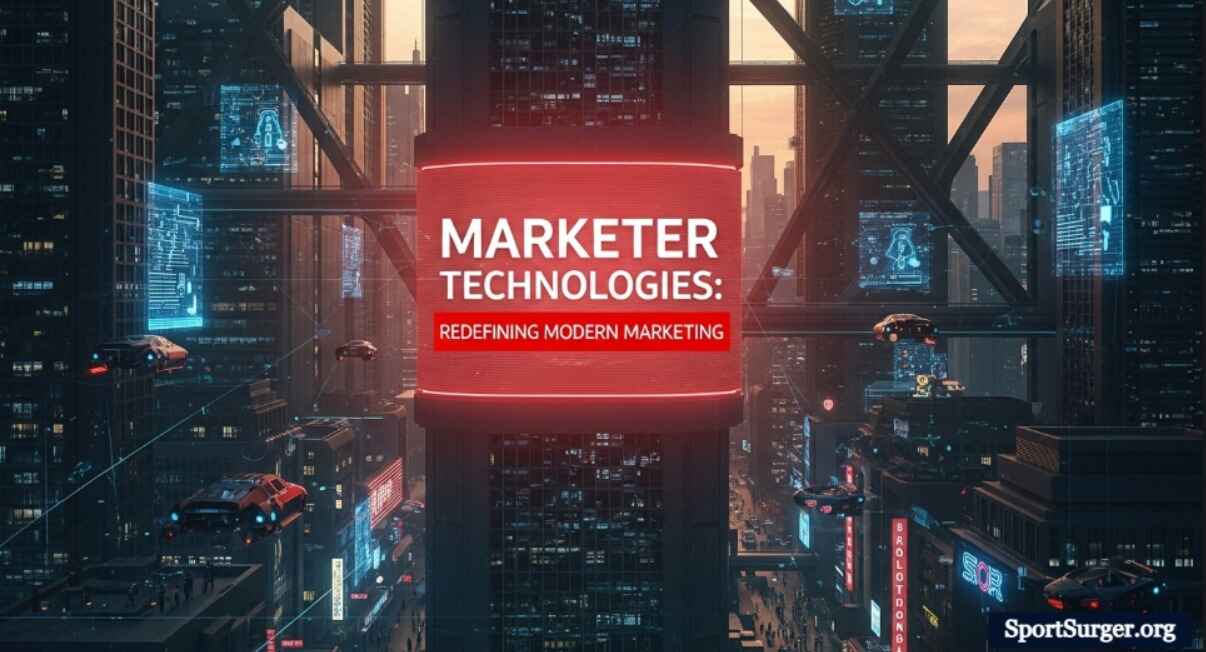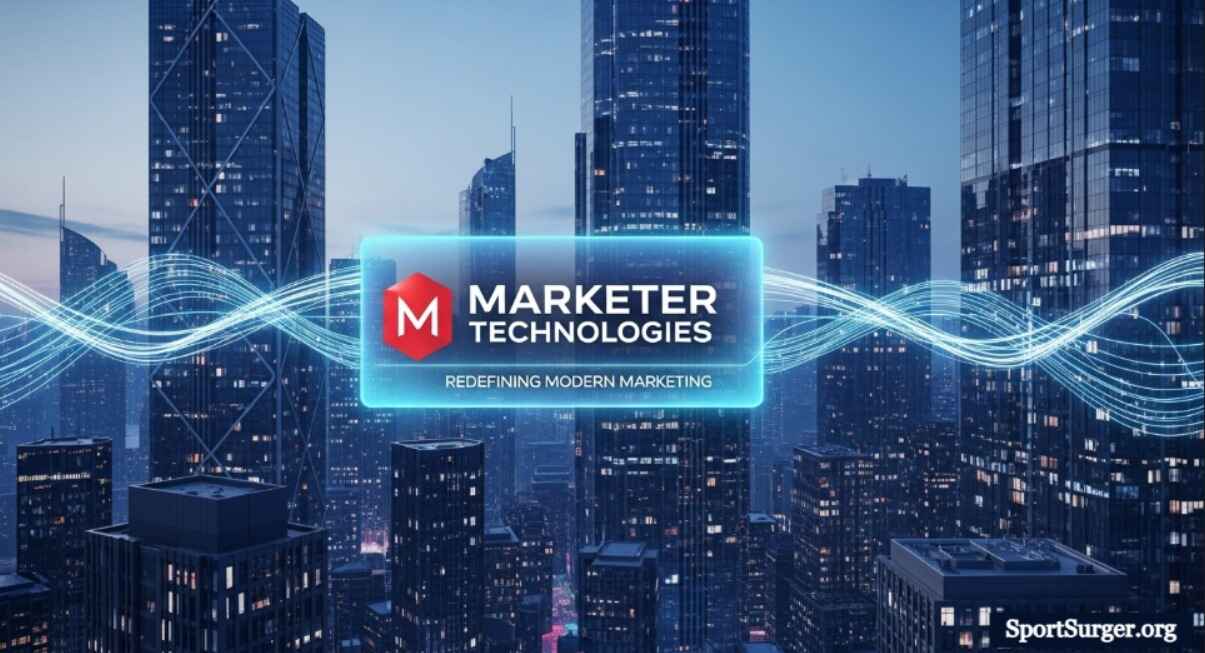Introduction
In today’s fast-paced digital world, marketer technologies have become the backbone of modern business growth.
From data-driven insights to artificial intelligence (AI) automation, the evolution of marketing tools has empowered organizations to understand, reach, and engage consumers like never before.
What was once a traditional, creativity-driven profession has now transformed into a technology-empowered ecosystem where analytics, automation, and personalization dictate success.
The fusion of technology and marketing—often referred to as MarTech (Marketing Technology)—is revolutionizing how brands connect with their audiences in real time.
In this comprehensive guide, we’ll explore the meaning, components, applications, and future trends of marketer technologies, along with insights into how businesses can leverage these innovations to maximize return on investment (ROI).
What Are Marketer Technologies?
Marketer technologies refer to a collection of digital tools, platforms, and software solutions that help businesses plan, execute, measure, and optimize their marketing campaigns. These technologies enhance efficiency, improve targeting, and deliver personalized experiences at scale.
In essence, marketer technologies bridge the gap between marketing strategy and digital execution. They allow brands to manage customer data, automate repetitive tasks, analyze performance metrics, and make smarter decisions.
Key Characteristics of Marketer Technologies
- Data-Centric: Relies heavily on analytics, insights, and performance tracking.
- Automation-Driven: Streamlines repetitive tasks like email campaigns, social media scheduling, and customer segmentation.
- AI-Powered: Uses machine learning algorithms to predict user behavior and recommend personalized actions.
- Integration-Focused: Combines multiple platforms (CRM, analytics, social media, etc.) into a unified marketing ecosystem.
The Importance of Marketer Technologies in Modern Business
Businesses today face highly competitive digital environments. The success of marketing campaigns depends not just on creativity but also on precision, timing, and personalization—all made possible through advanced marketer technologies.
Why Marketer Technologies Matter
- Improved Customer Understanding: Access to data analytics helps marketers understand behavior, preferences, and purchasing patterns.
- Enhanced Efficiency: Automation tools save time, allowing teams to focus on strategic creativity.
- Personalized Engagement: AI-driven insights enable brands to deliver tailored experiences to individual users.
- Measurable ROI: Every digital activity can be tracked, analyzed, and optimized for better outcomes.
- Scalability: Marketer technologies enable businesses to grow campaigns without proportionally increasing resources.
Core Components of Marketer Technologies
Marketer technologies encompass a wide range of tools and platforms, often categorized under the MarTech Stack—a combination of software applications that support marketing functions.
1. Customer Relationship Management (CRM) Systems
CRMs like Salesforce or HubSpot help manage customer interactions, store data, and track communication history. They are essential for personalized marketing and sales alignment.
2. Marketing Automation Tools
Automation platforms streamline repetitive processes such as email campaigns, social media posting, and lead nurturing. Popular examples include ActiveCampaign and Marketo.
3. Analytics and Data Platforms
Tools like Google Analytics, Mixpanel, or Adobe Analytics enable marketers to track performance metrics, conversion rates, and customer journeys in real time.
4. Content Management Systems (CMS)
CMS platforms, such as WordPress or Drupal, help businesses manage, publish, and optimize website content for search engines and users alike.
5. Search Engine Optimization (SEO) Tools
SEO technologies—like SEMrush or Ahrefs—assist marketers in keyword research, backlink analysis, and on-page optimization.
6. Social Media Management Tools
Platforms such as Buffer, Hootsuite, and Sprout Social help brands schedule posts, track engagement, and analyze audience behavior across multiple networks.
7. Advertising Technologies (AdTech)
AdTech tools handle online advertising campaigns, including programmatic ads, PPC bidding, and real-time targeting across digital platforms.
8. Customer Data Platforms (CDP)
CDPs unify customer information from multiple touchpoints into a single database, allowing for accurate segmentation and personalization.
How Marketer Technologies Enhance Customer Experience
Customer experience (CX) is at the heart of modern marketing success. Marketer technologies play a vital role in crafting seamless, data-driven, and consistent customer journeys.
1. Personalization at Scale
AI-powered tools analyze data points—like browsing history and past purchases—to deliver hyper-personalized offers and content.
2. Omnichannel Engagement
Technologies ensure consistent communication across email, social media, web, and mobile platforms.
3. Predictive Analytics
Marketers can forecast customer needs using predictive models, improving satisfaction and retention.
4. Real-Time Interactions
Chatbots, live support, and real-time notifications enhance user engagement and brand responsiveness.
The Role of Artificial Intelligence in Marketer Technologies

AI has redefined marketing strategies by transforming how data is processed and decisions are made.
Applications of AI in Marketer Technologies
- Customer Segmentation: Grouping audiences based on predictive behavior.
- Content Creation: Generating optimized, targeted content using NLP-based tools.
- Ad Optimization: Automatically adjusting campaigns for maximum ROI.
- Voice and Visual Search: Enhancing discoverability through next-gen search features.
- Sentiment Analysis: Monitoring brand perception through AI-driven analytics.
Benefits of AI-Powered Marketer Technologies
- Enhanced targeting precision
- Reduced human error
- Improved personalization
- Faster decision-making
The Engine Behind Marketer Technologies
Data is the lifeblood of modern marketing. Without accurate analytics, even the most creative campaign can fail to deliver results.
Types of Marketing Data
- Demographic Data: Age, gender, income, and location.
- Behavioral Data: Clicks, time on site, and conversion patterns.
- Transactional Data: Purchase history and product preferences.
- Psychographic Data: Interests, values, and lifestyle indicators.
How Data Enhances Decision-Making
Marketer technologies collect and interpret this data to:
- Identify trends
- Predict outcomes
- Optimize ad spend
- Measure campaign success
Challenges in Implementing Marketer Technologies
While powerful, marketer technologies also pose challenges that organizations must address strategically.
1. Data Privacy and Compliance
Adhering to GDPR and other privacy laws is critical when managing consumer data.
2. Integration Complexity
Many companies struggle to connect various tools into a cohesive system.
3. Skill Gaps
Marketers need technical expertise to effectively use advanced MarTech platforms.
4. Budget Constraints
Smaller businesses often face limitations in adopting premium tools and analytics suites.
The Future of Marketer Technologies
The future of marketer technologies lies in automation, intelligence, and integration. Emerging innovations are expected to make marketing more predictive, personalized, and human-centered.
Emerging Trends
- AI-Generated Marketing Content
- Voice and Visual Search Optimization
- Augmented and Virtual Reality Marketing
- Blockchain-Based Transparency in Advertising
- Ethical AI and Data Governance
As these trends evolve, the line between technology and human creativity will continue to blur—creating a future where marketers operate as both strategists and technologists.
How Businesses Can Leverage Marketer Technologies
1. Build an Integrated MarTech Stack
Choose tools that align with your goals and integrate seamlessly.
2. Focus on Data Literacy
Train teams to interpret and use data effectively.
3. Prioritize Customer Experience
Adopt technologies that improve user journeys, not just operational efficiency.
4. Automate Smartly
Use automation for repetitive tasks but maintain a human touch in personalized interactions.
5. Continuously Optimize
Regularly analyze campaign data to refine strategies.
Conclusion
The rise of marketer technologies marks a new era of data-driven decision-making, intelligent automation, and hyper-personalized experiences. Businesses that embrace these tools gain a competitive edge—boosting productivity, customer satisfaction, and overall marketing ROI.
In the years ahead, success in marketing will depend not only on creativity but also on how effectively organizations leverage technology to understand, anticipate, and serve their audiences. By mastering marketer technologies, brands can navigate the complexities of the digital landscape and thrive in an ever-evolving global marketplace.

